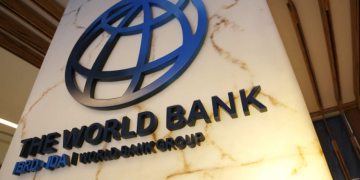The World Bank has downgraded Kenya’s economic growth forecast for the year to 4.7% from an initial 5% forecast in June 2024 – all lower than the 5.6% recorded in 2023.
- The downward revision to pre pandemic average levels was driven by the severe floods in April and the deadly anti Finance Bill protests in June.
- The world bank expects 5% growth in 2026, slower than the 5.3% it had estimated earlier citing further fiscal slippages, extreme weather events and external economic challenges as the main risks.
- The revised estimate, however, remains above the 3% Sub Saharan Africa average with the Washington based lender positive that fiscal discipline and prudent debt management will be critical for long-term stability.
“Growth in 2024 is estimated at 4.7 percent, a downward revision from the June 2024 economic update following headwinds that have already impacted headline growth during the year including severe floods in Q2-24, subdued business sentiment following the mid-2024 protests, a tighter monetary policy, and ongoing fiscal consolidation,” World Bank noted in the Kenya Economic Update Report.
In the economic update report, published twice a year, the World Bank noted that missed revenue targets continue to ail the budgeting process, owing to the overly optimistic revenue targets leading to budget shortfalls. Higher debt servicing costs from the increased reliance on high interest rates domestic borrowing has put pressure on the fiscal space with Kenya still facing high risks of debt distress.
“Debt vulnerabilities including elevated debt servicing costs, accumulated pending bills, and missing revenue targets remain key challenges,” World Bank noted in the report.
The report noted that business confidence remained subdued in the year with jittery sentiments in the private sector growth. Further, the severe floods in April affected the livelihood of households, mostly in urban areas, limiting growth in private consumption. The construction sector was affected by the high real interest rates amid the weaker housing demand, which negatively impacted the headline growth.
The multilateral lender however noted that lower inflation, adequate weather conditions and easing monetary policy will support disposable incomes of the private sector by boosting consumption to spur economic growth. Non performing loans increased, highlighting the growing credit risks in the banking sector with borrowers facing the hurdle in the high interest rates regime.
“While the fiscal deficit remains high, its steady decline offers a key opportunity to further reduce debt vulnerabilities through strategic revenue mobilization, fiscal discipline, and growth-oriented policies,” said Naomi Mathenge, World Bank Senior Economist.




